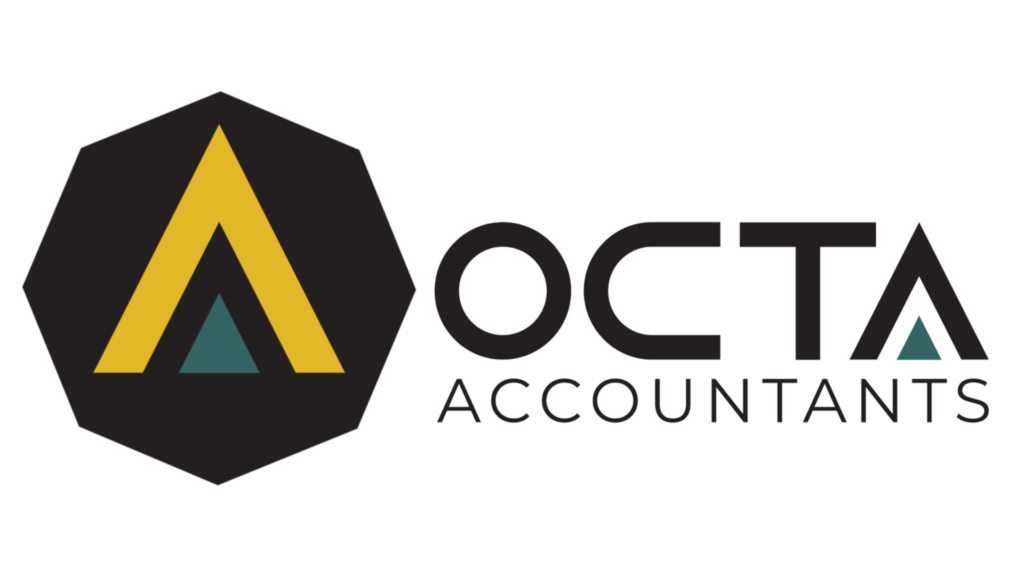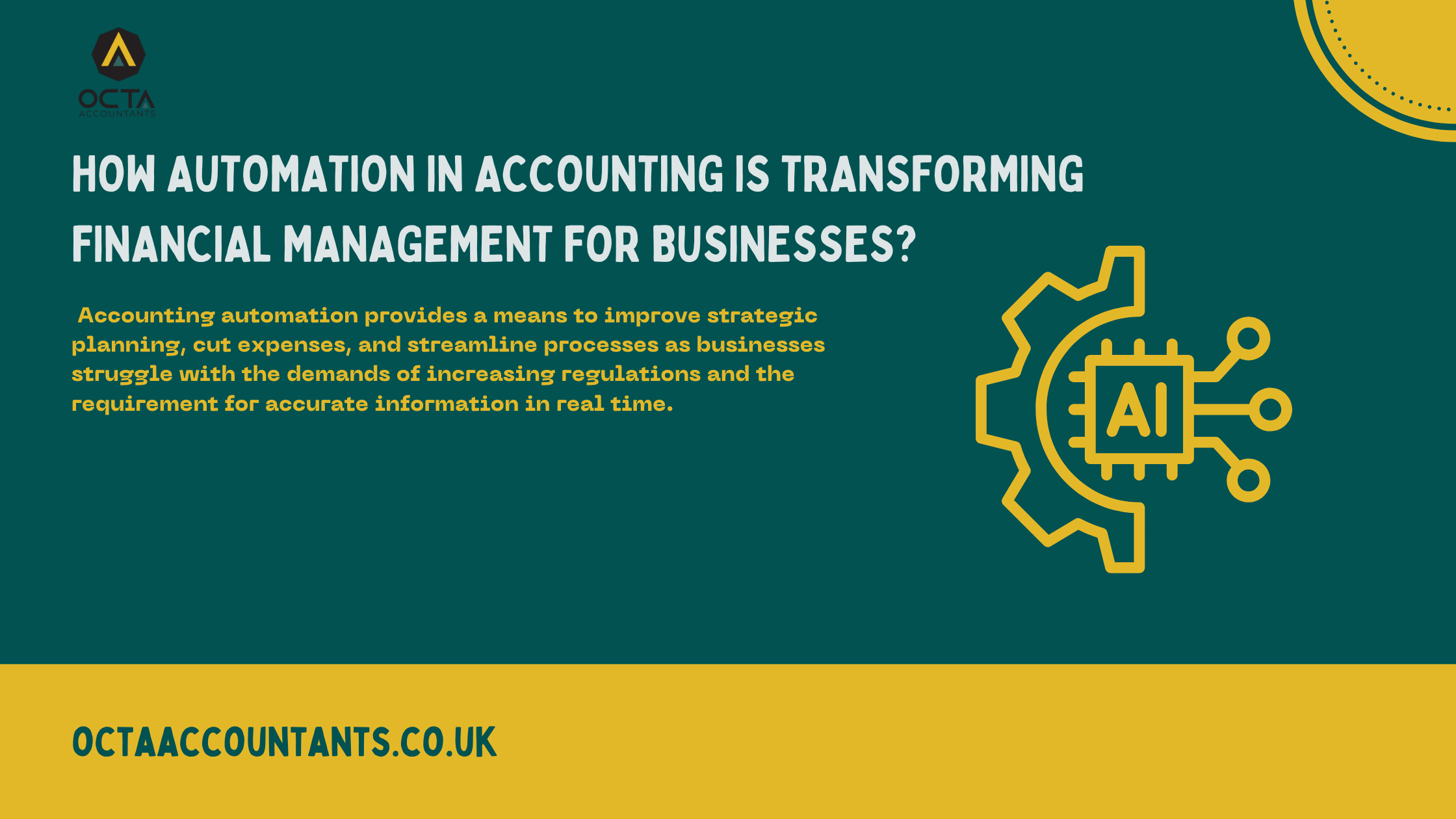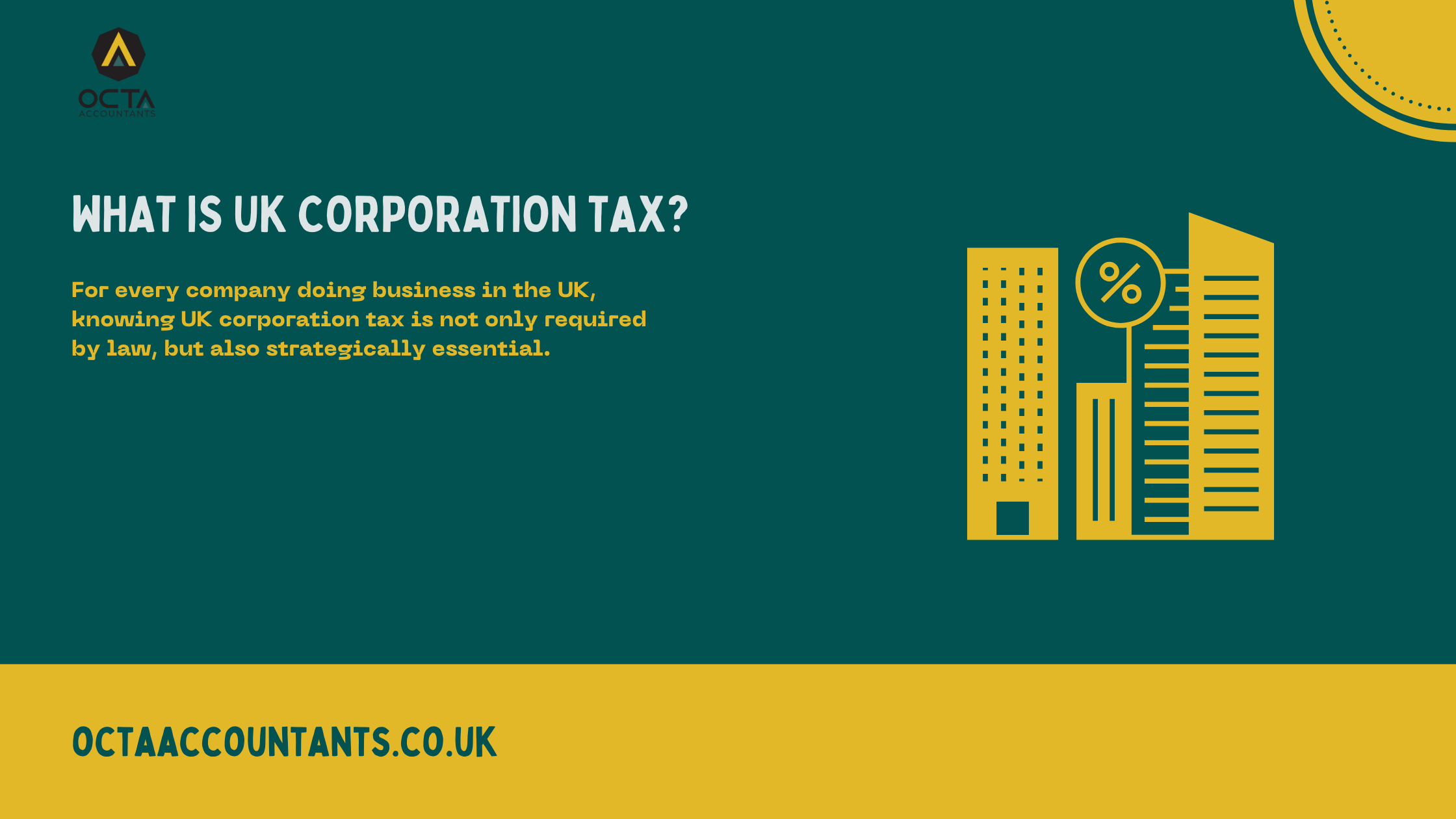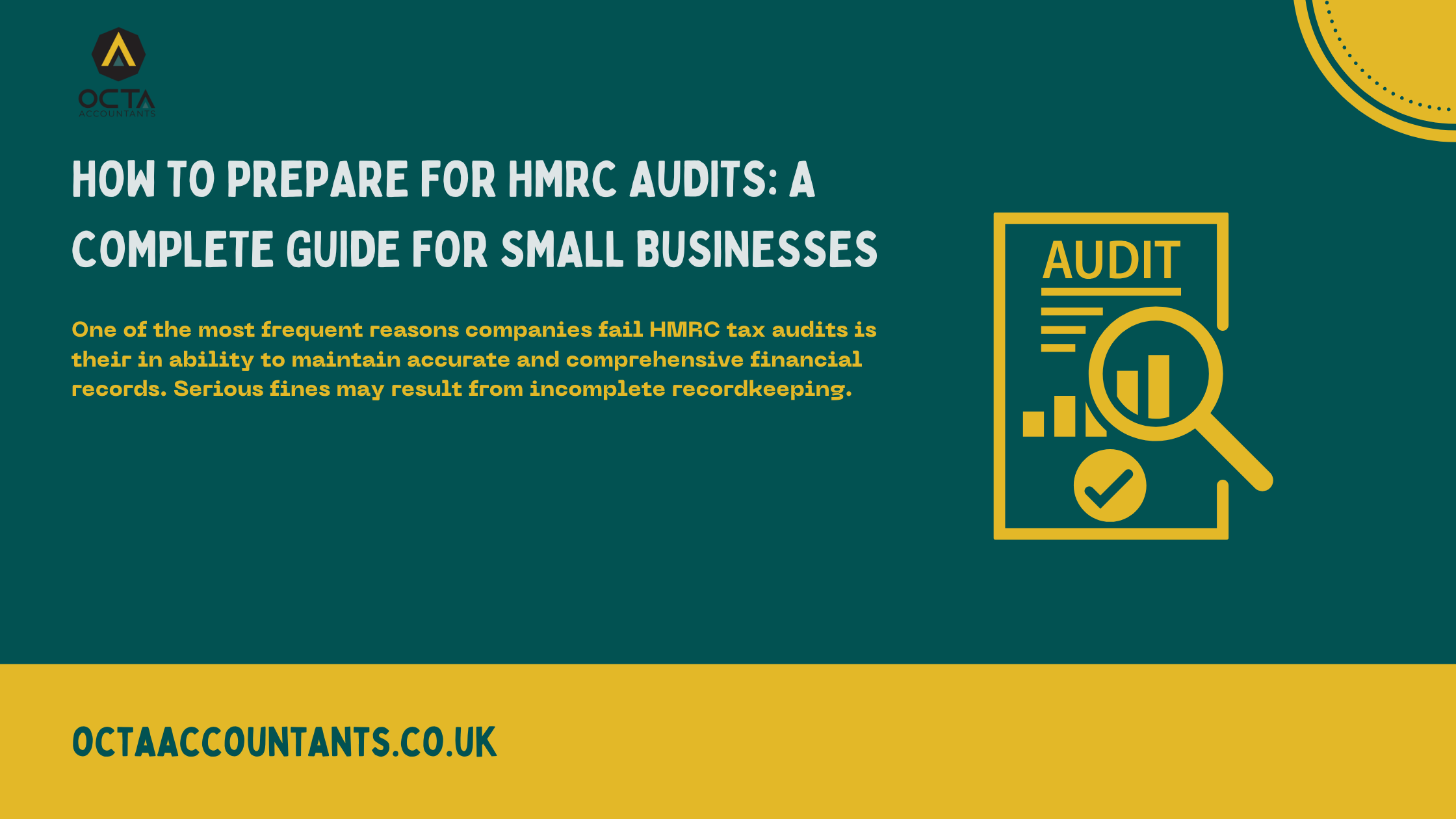
Octa Accountants

7 Min Read

Nov 27, 2024

Company Incorporation


The UK taxation is never static, as changing economic conditions, government priorities and international obligations will lead to the introduction of new legislation, change in policy or guidance over time. Given these transitions, it is imperative for individuals and corporations to stay updated about such developments in order to remain compliant and structure their tax strategies appropriately. Keeping up with the newest advancements in tax law is more than just following the regulations, it is critical for navigating possible opportunities, avoiding penalties, and aligning with larger financial goals.
The latest UK tax law changes focus on addressing inflation, supporting economic recovery, and ensuring fair taxation across different income levels through changes such as freezing income tax thresholds, adjusting National Insurance contributions, reforming corporation tax rates, and updating VAT rules. Additionally, there have been significant modifications to capital gains tax (CGT) and inheritance tax (IHT), impacting how individuals and businesses manage their financial obligations. Let’s take a look at the recent changes in the UK tax law by breaking down their implications and providing insights that might be helpful in adjusting your tax planning accordingly.
Also Read: 7 Best Blogs For Accountants To Follow
Certain updates have been made to the income tax laws which might not have significantly changed the numbers but it does mean that you will be paying more tax. The personal allowance, or the amount you may earn without paying taxes, is at £12,570 and will remain so until 2028. However, when wages rise over time, this freeze implies that more people will pay taxes on a larger portion of their earnings.The higher-rate tax threshold, which is now £50,270, is also frozen. This implies that if your income rises over this level, you will begin paying 40% tax on the amount above the threshold. For individuals earning higher than £125,140, the extra rate of 45% now applies earlier. These freezes are part of the government’s effort to increase revenue without raising tax rates.
National insurance is another area where minor modifications can have a significant impact. Employees and employers also contribute, and these contributions are used to support services like the NHS and state pensions. While wage restrictions have been somewhat changed, the good news is that the temporary 1.25% increase imposed to help with health and social care funds has been abolished. This results in somewhat lower deductions from your paycheck as well as reduced costs for businesses.
The rise in corporation tax which is the tax that companies pay on their profit is one of the most critical changes in the uk tax law. The rate remains at 19% for smaller companies with annual profits up to £50,000. However, you will now have to pay 25% tax if your company makes more than £250,000 in profit. Depending on their earnings, the rate gradually rises for businesses that fall somewhere in the middle.
Navigating the complexities of eCommerce accounting can be overwhelming, but you don’t have to do it alone. At Octa Accountants, we specialize in helping businesses streamline their financial processes, manage inventory, and stay compliant with tax laws. Whether you’re a small business or a growing enterprise, our expert team is here to ensure your finances are in perfect order—so you can focus on scaling your business.
VAT rates have not changed much, however it is important to note the regulations. The amount of £85,000 in revenue continues to be the threshold for when a business must register for VAT. However, if salaries and prices increase, more small businesses may reach this threshold and have to register.
You may be required to pay Capital Gains Tax (CGT) if you sell anything valuable, such as shares or a second property, and you make a profit. The amount of profit you can make before paying tax has been reduced. It used to be £12,300, but it is now £6,000 for the current tax year, and it will decrease even lower to £3,000 the next year. As a result, more people will have to pay CGT on lesser gains.
Also Read: Will accountants be replaced by AI?
The rates for Inheritance Tax (IHT) have remained unchanged. But since the thresholds haven’t changed, more estates are falling into the taxable range as a result of increased housing prices.
Taxes are another tool the government is employing to encourage people and companies to adopt eco-friendly practices. Going green might be more affordable for businesses who invest in energy-efficient equipment because of tax breaks.
The government is still implementing its digital tax system, which necessitates that people submit their taxes using softwares. Currently, this mostly affects businesses and landlords that make more than a specific amount, but the regulations are progressively being extended. Self-employed people and landlords making more than £50,000 will have to comply by 2026, while those making more than £30,000 will have to do so by 2027.
Due to changes in the taxation of mortgage interest landlords may no longer completely deduct these expenses from their rental revenue. They receive a basic-rate tax credit instead, which might result in higher overall tax payments.
With more severe penalties for individuals who break the law, the government is stepping up its efforts to combat tax evasion and inaccuracies. It’s more crucial than ever to make sure your records are both accurate and recent since they’re utilizing digital techniques to find discrepancies and unpaid taxes.
Recognizing you need professional help is the first step to managing your finances especially if you are a large scale business. Even for smaller businesses and start ups it is essential to rope in the professionals so they can help you unnecessary stress that comes with hefty fines which might come your way with a slight negligence. Here at Octa Accountants we specialize in simplifying tax matters for businesses as well as individuals. Whether you need help filing your taxes, understanding new rules, or planning for the future, we’re here to help every step along the way. Get in touch with us right now to avail our expert accounting services!
About Us
Octa Accountants is a one-stop accounting firm that offers a wide range of finance management services.
Our Blogs
How Automation in Accounting is Transforming Financial Management for Businesses?
How Automation in Accounting is Transforming Financial Management for Businesses? Octa Accountants 7 Min Read Apr 14, 2024 Technology Staying ahead of current trends is crucial for development and sustainability…
What is UK Corporation Tax?
What is UK Corporation Tax? Octa Accountants 7 Min Read Apr 14, 2024 Company Incorporation For businesses hoping to be legally and financially effective, navigating the complexity of the UK…
How to Prepare for HMRC Audits: A Complete Guide for Small Businesses
How to Prepare for HMRC Audits: A Complete Guide for Small Businesses Octa Accountants 7 Min Read Apr 14, 2025 Audit From overseeing daily operations to making sure financial records…



